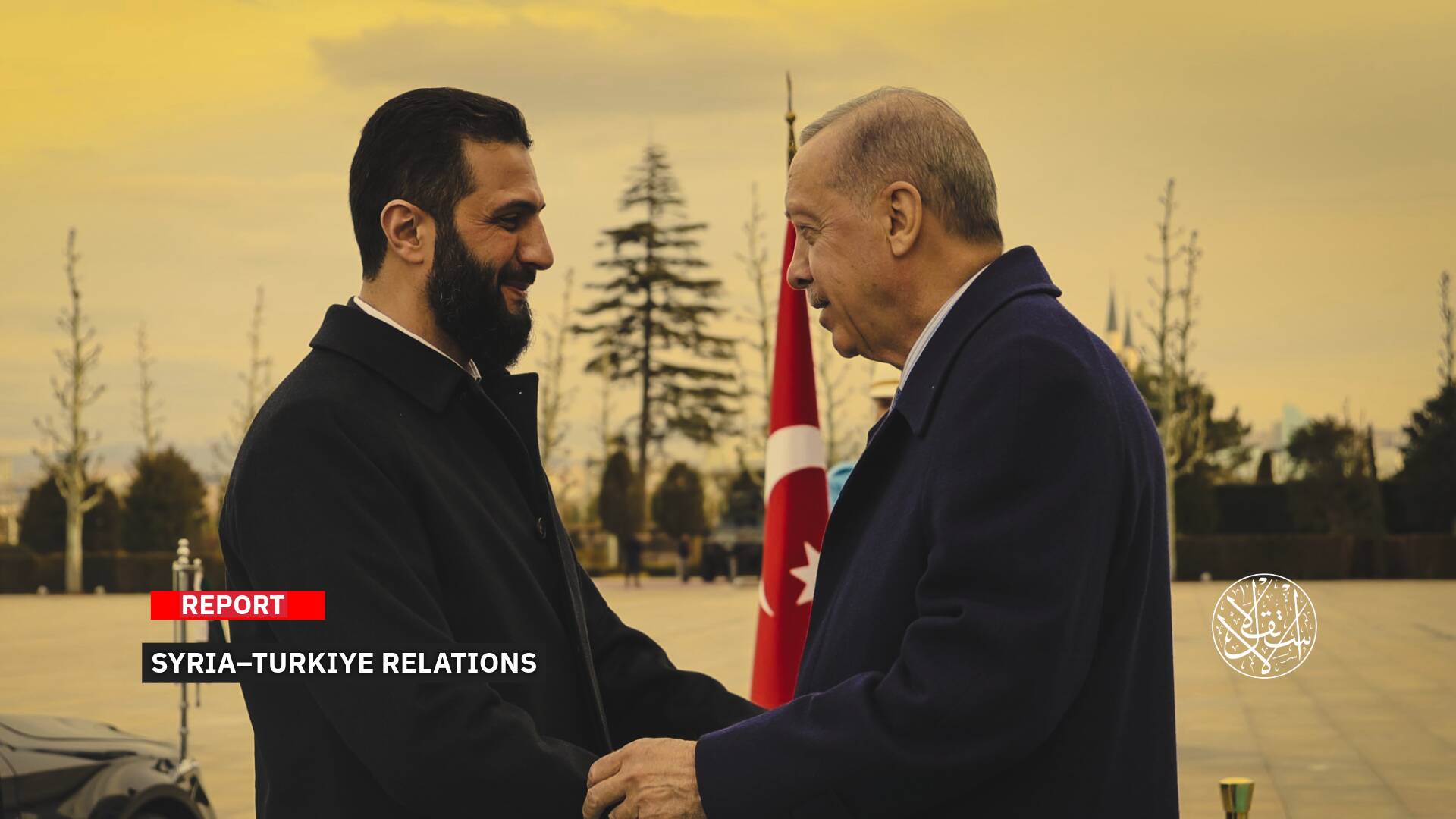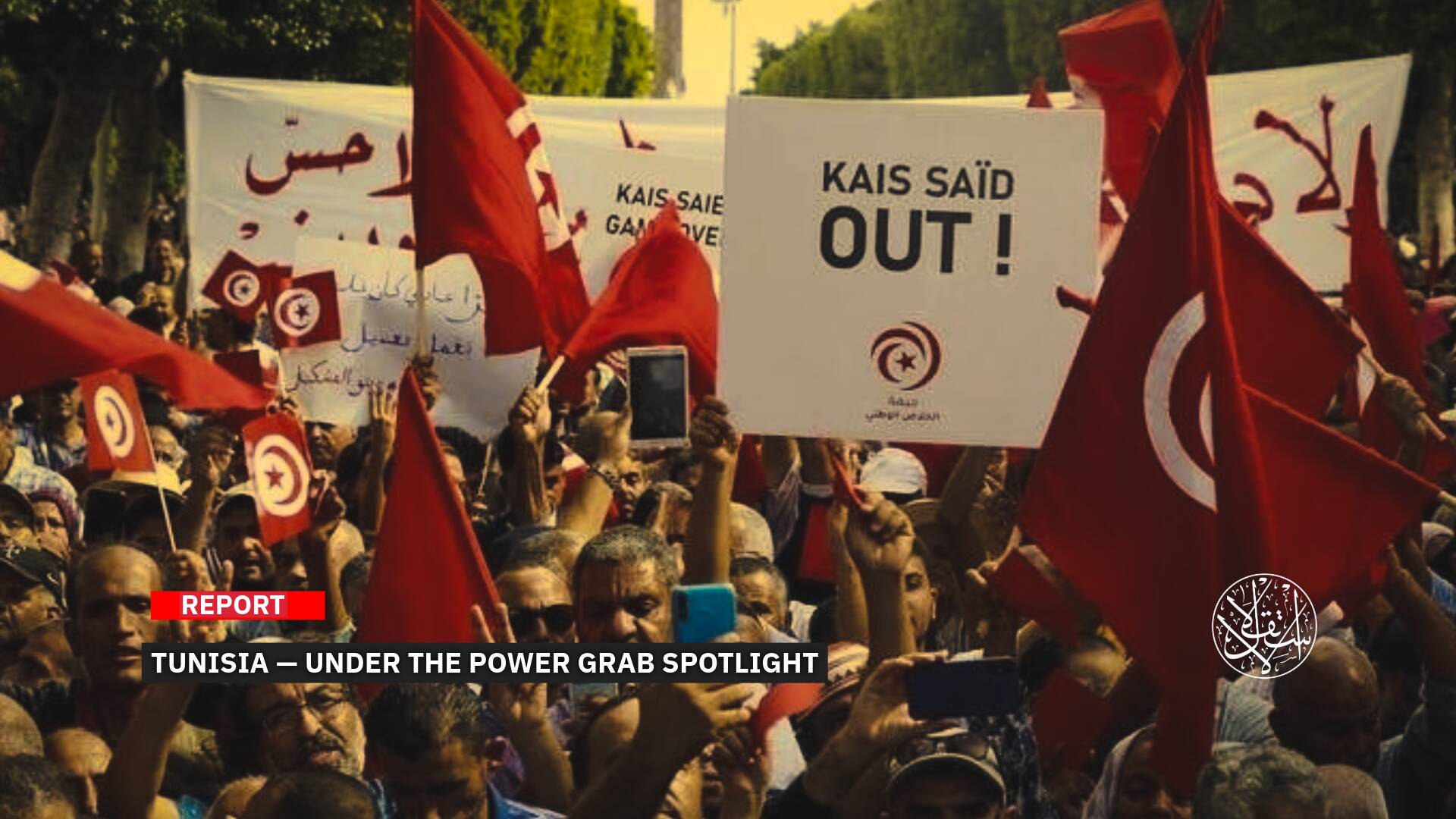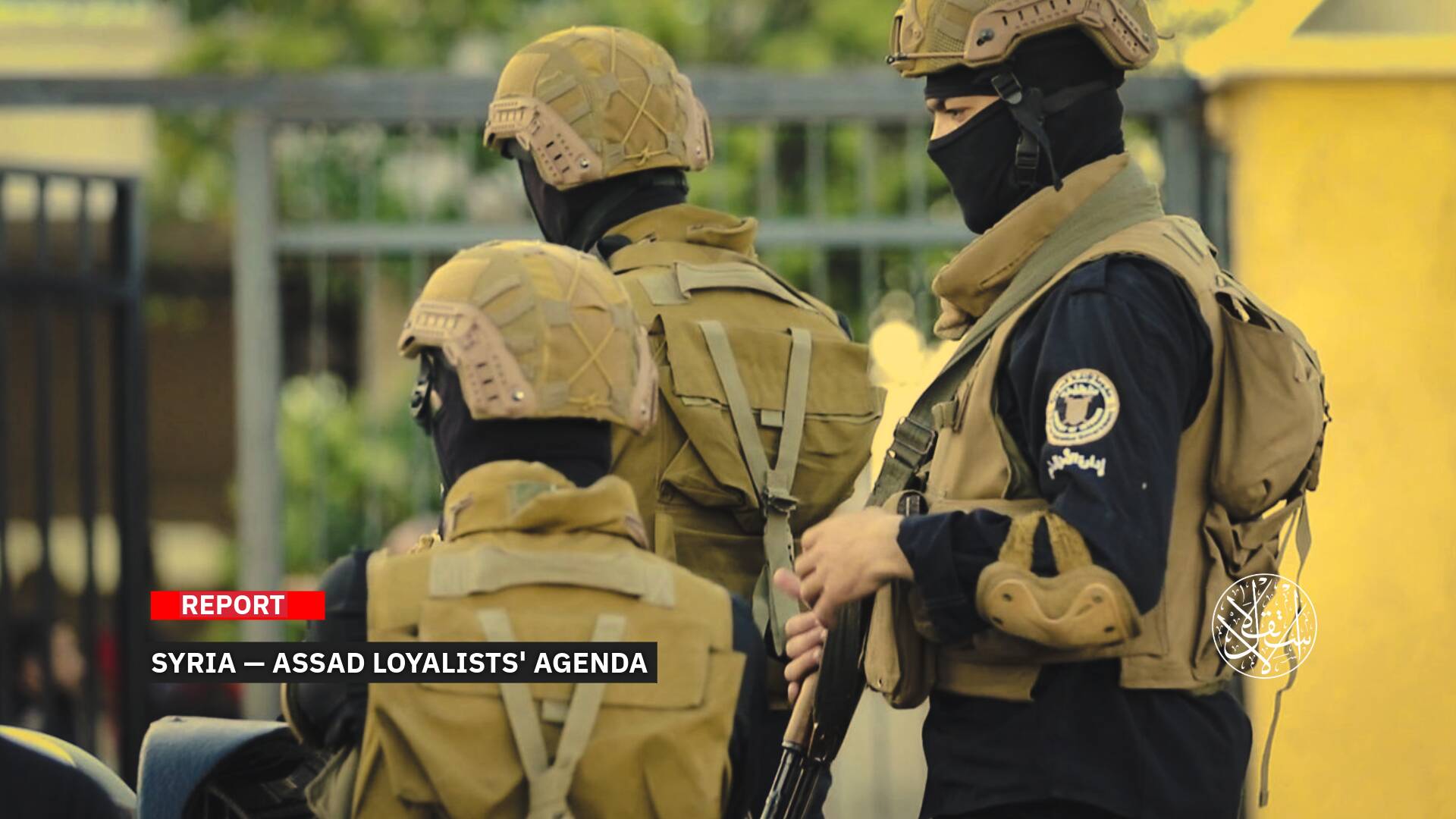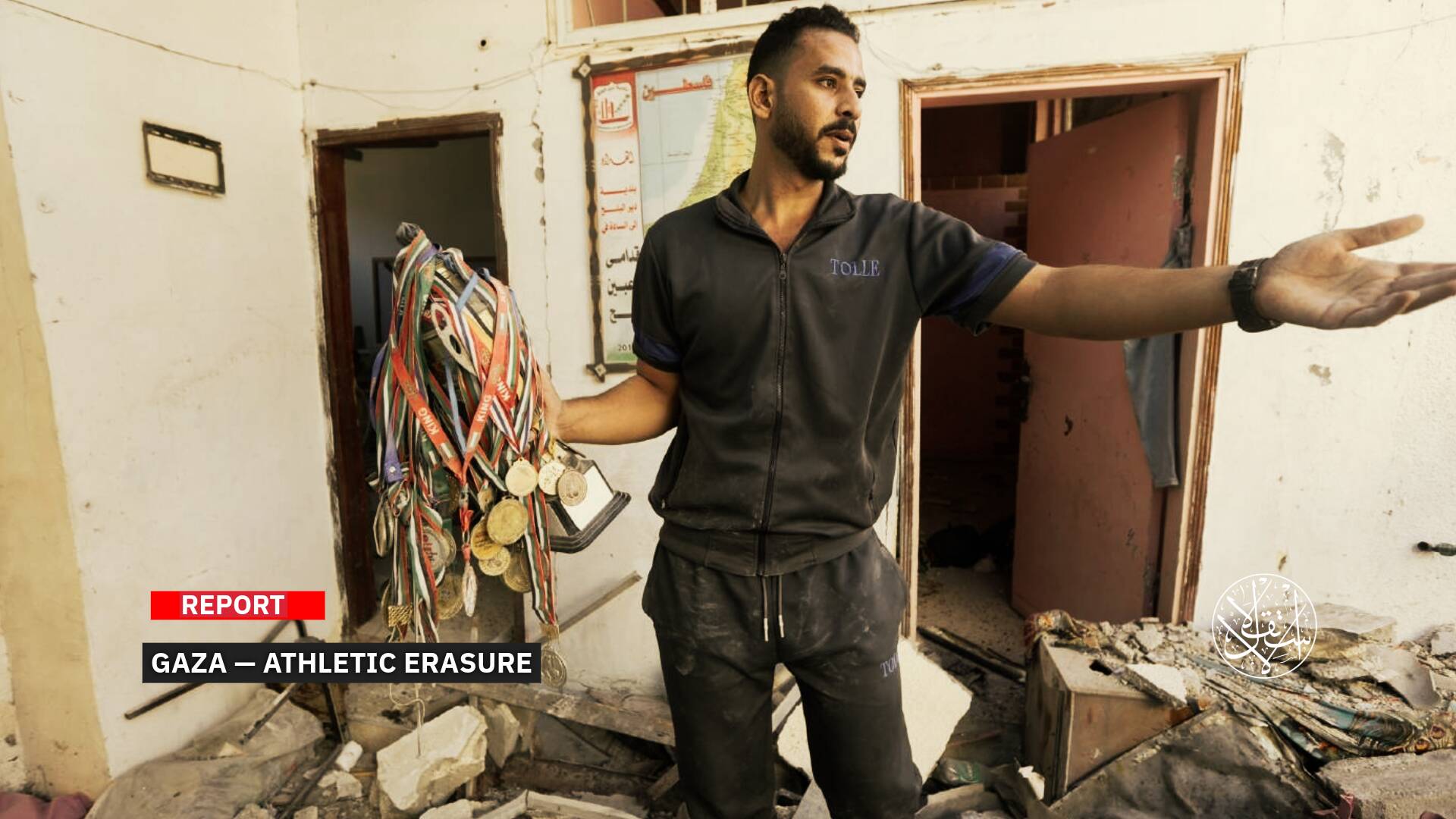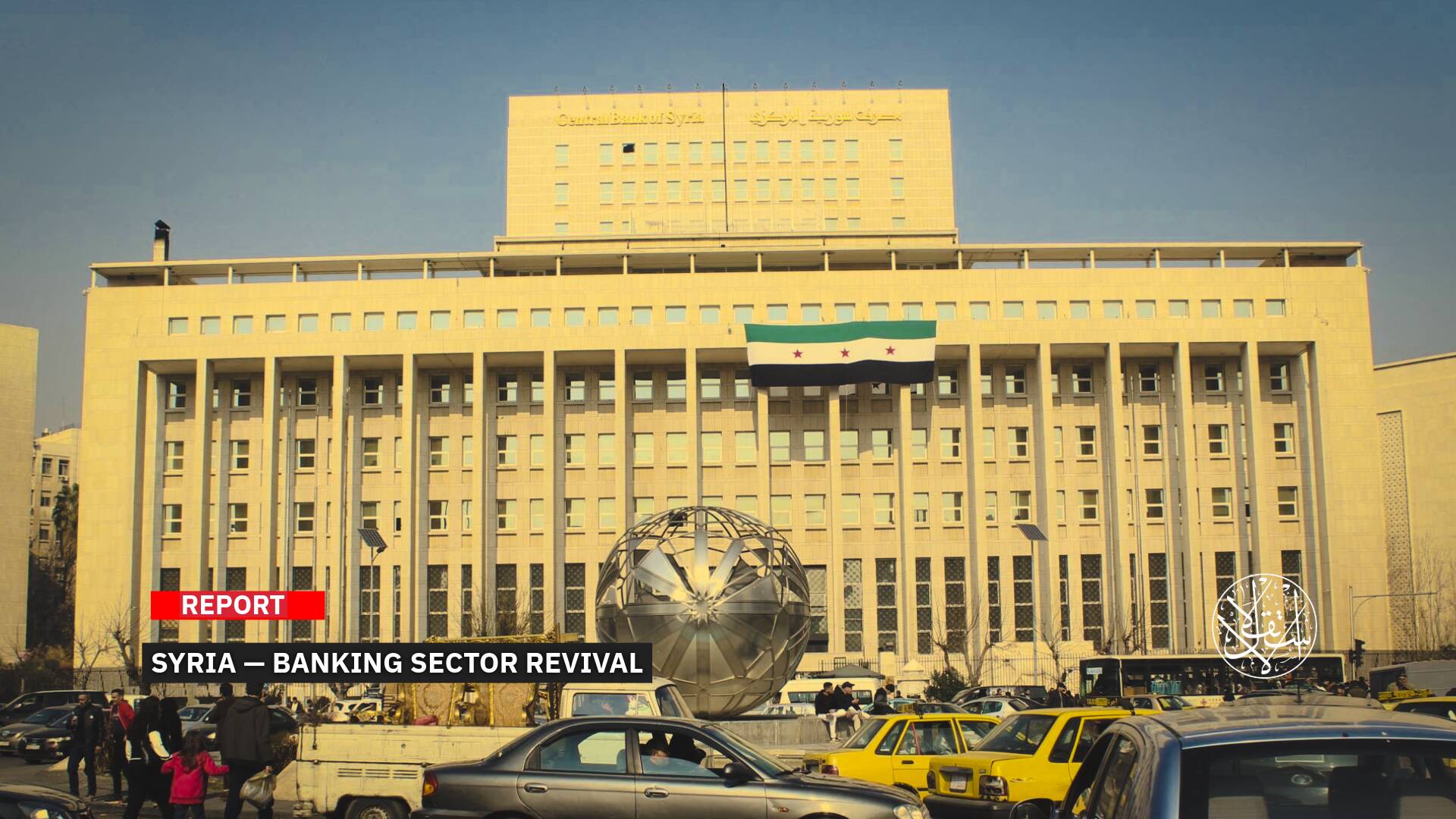If 'Israel' Invades Southern Lebanon, How Deeply Could Iraq Engage in the War?

“Israel will impose war on us, and we will gladly face it.”
Amid the ongoing drone attacks launched by Iraqi factions on the occupied Palestinian territories, “Israel” has vowed to carry out strikes on Iraq. This comes after Israeli Prime Minister Benjamin Netanyahu classified Iraq as one of the “hostile nations.”
In solidarity with Gaza, which has been facing Israeli genocide since October 7, 2023, Iraqi factions, alongside Yemen’s Houthis and Lebanon’s Hezbollah, have been conducting various operations against “Israel,” including targeting ships linked to “Tel Aviv” in the Red Sea and the Arabian Sea.
To stop these attacks, these factions demand an end to the U.S.-backed Israeli war on Gaza, which has resulted in over 139,000 Palestinian martyrs and wounded, more than 10,000 missing, alongside massive destruction and famine killing dozens of children and the elderly.
Israeli Threats
Although the so-called Islamic Resistance in Iraq has claimed responsibility for several attacks against “Israel,” for the first time, the Israeli army announced on October 4, 2024, that two soldiers were killed and 24 others wounded in a drone attack from Iraq on northern occupied territories.
According to Israeli War Forces, this is the first time since the beginning of the war that Iraqi Shia groups have successfully attacked “Israel,” causing fatalities and injuries.
The Israeli army identified the two soldiers as Sgt. Daniel Aviv Haim Sofer and Cpl. Tal Dror, both 19, who were serving in the army's Golani Brigade's 13th Battalion.
Two drones were fired from Iraq toward northern “Israel,” one was intercepted, while the other exploded at a base in the Golan Heights, resulting in the deaths of the two soldiers and injuries to the additional 24 soldiers, the Israeli investigation concluded.
According to two separate statements from the Islamic Resistance in Iraq on Telegram, their fighters carried out drone strikes on Israeli targets in the northern occupied territories, including the Golan Heights, on October 3 and 4.
On September 22, The Jerusalem Post warned Israeli authorities against “ignoring” the threats coming from Iraq, urging them to take the necessary measures to secure “Israel.”
According to the Hebrew newspaper, Iraq has become a constant threat to “Israel” since October 7, with Iraqi factions expanding their bombardment operations towards the port of Eilat and some military bases.
It emphasized that the statements made by the head of Iraq’s Kata’ib Sayyid al-Shuhada, Abu Alaa al-Walae, should not be ignored by the Israeli government.
It further noted that the threats made by Abu Alaa, which included promises to send fighters to Lebanon to support Hezbollah in the war against the Israeli Occupation, now pose “a direct threat to Israel's national security,” calling on Israeli authorities to “take the necessary steps to protect the country from these threats.”
On September 21, al-Walae sent a message to former Hezbollah leader Hassan Nasrallah, saying he was ready to send 100,000 fighters to Lebanon to fight against Israelis, declaring that Iraq is the lifeline of the Resistance Axis, providing it with both men and equipment.
On September 25, “Israel” vowed to “do what is necessary” to respond to attacks from Iraqi factions.
“We are closely monitoring the threats coming from Iraq and gathering intelligence,” Israeli army spokesperson Daniel Hagari stated. “We will do what is necessary.”
Iraqi Measures
In response to the escalating threats from Iraqi factions and Israeli warnings of retaliation, Iraq has announced several measures to protect its airspace. This comes despite government spokesperson Basim al-Awadi’s assurances that “Iraqi parties have maintained a stance of avoiding escalation” amidst the growing conflict in the region.
On October 5, Major General Yehia Rasool, spokesperson for the Commander-in-Chief of the Iraqi Armed Forces, confirmed to the official Iraqi News Agency (INA) that all necessary measures had been taken to secure Iraqi airspace, stating that the country can effectively monitor air traffic entering and leaving its borders.
Rasool noted that “the Iraqi government, led by Prime Minister Muhammad Shia al-Sudani, has placed significant emphasis on enhancing air defense capabilities.”
He mentioned that a contract was signed with South Korea a few months ago to acquire an advanced air defense system, noting that it will take time to complete its construction.
“The advanced F-16 and K-50 aircraft, along with transport and reconnaissance aircraft, constitute an Iraqi air force that contributes to protecting Iraq and defending its sovereignty.”
“Iraqi army units are stationed along the borders, in addition to five lines of border forces conducting proactive and qualitative operations in areas identified through intelligence,” the spokesperson further stated.
Apart from official statements, Iraqi sources close to the government revealed to Al-Estiklal that a range of measures have been taken to prepare for any potential Israeli attack in response to operations carried out by Iranian-aligned Shiite militias.
“The Iraqi Prime Minister recently directed the need to return all leaders and members of the Popular Mobilization Forces (PMF) to their bases, distancing them from the governmental circles to which they had been temporarily relocated in previous periods,” the sources said after requesting anonymity.
“The Prime Minister's directives coincided with the withdrawal of several militias, particularly the Iraqi Hezbollah Brigades, from their positions, especially in the provinces of Anbar and Nineveh, which are near the Syrian border, in anticipation of potential targeting by Israel.”
The same sources revealed that “the Iraqi Prime Minister is pressuring Shiite militias and leaders of the Shiite Coordination Framework to ensure that Iraq does not become as vulnerable as Lebanon, especially since it lacks air defenses and its airspace is controlled by the United States.”

Target List
Regarding the anticipated scenarios for potential Israeli strikes on Iraq, the sources confirmed that “there are expectations of targeting several leaders of armed factions and their headquarters, particularly in the Jurf al-Sakhar area north of Babil province, as well as along the border with Syria."
On September 30, Monte Carlo published a report detailing an emergency meeting held by the Shiite Coordination Framework, attended by the Iraqi Prime Minister, to discuss the serious developments in Lebanon.
The report disclosed a list of Iraqi targets that “Tel Aviv” intends to attack; this is tied to the possibility of a significant regional escalation and a broader regional war, as well as the extent to which Iraqi factions may escalate their confrontations with “Israel.”
The report indicated that among the primary targets are the sites of what are referred to as Iraqi Islamic Resistance factions, specifically in the areas of al-Qa’im and al-Bukamal, which are located along the Iraq-Syria border."
Other significant targets include the camps of the Popular Mobilization Forces (PMF), which host Shiite armed factions, particularly in the southern Baghdad areas of Latifiya and Mahmudiyah, as well as in Babil province south of Baghdad.
These regions and cities house crucial camps for Iraqi factions, including sites in Diyala province, northeast of Baghdad, along the Iraq-Iran border, which, according to the report, will likely be targeted by Israeli airstrikes.
The international radio further noted that Israeli attacks may also involve the assassination of important Shiite military and political leaders, particularly Hadi al-Amiri (the leader of the Badr militia), who has been placed on the Israeli target list.

The report noted that “the Iraqi army is unprepared for this confrontation and lacks any air defense equipment. The U.S. side has informed the Iraqi authorities that it will not prevent these airstrikes if Iraq or its factions become involved, given that the international coalition led by the United States is responsible for protecting the airspace.”
“The land scenario, which involves sending ground troops, is what remains. In fact, the process of mobilizing ground forces has begun, and a call for volunteers will be opened. Thousands have already volunteered within two days to confront Israel,” according to the same source.
“These volunteers are likely to go to the Golan Heights or southern Lebanon to counter any potential Israeli ground attack. There are also discussions about a ground scenario specifically for Iraqi factions.”
“A significant portion of the Popular Mobilization Forces is prepared for this confrontation due to ideological calculations related to Hezbollah, as both belong to the Shia sect, thus increasing the likelihood of opening a front in the Golan Heights,” the report concluded.
On October 6, Salam al-Jazaeri, a member of the political bureau of the Iraqi militia Asa'ib Ahl al-Haq, confirmed in a television interview that “Israel will impose war on us, and we will gladly face it.”
“The coming days will witness an open war, and Israel will launch strikes on the headquarters [he did not mention names or locations]. The Iraqi government is currently cautious and has placed some of its forces on high alert, as war is inevitable,” according to al-Jazaeri.
Sources
- Iraq: Emergency Meeting of Shiite Coordination Framework Amid Potential Israeli Targets [Arabic]
- Iran, Hezbollah, and allies amplify threats following Beirut strike - analysis
- Two Israeli Soldiers Killed in Drone Strike From Iraq in Northern Israel
- First Response to Strikes from Iraq: Israel Vows to Take Necessary Action [Arabic] [Israel]
- Islamic Resistance in Iraq Announces First-Ever Drone Attack on Israeli Target [Arabic]
- Israeli Newspaper Warns of Militia Statements: Iraq Has Become a Source of Threat [Arabic]
- Message from Abu Alaa al-Walae, Secretary-General of Kataib Sayyid al-Shuhada in Iraq, to Sayyed Nasrallah [Arabic]
- General Rasul: All Necessary Measures Taken to Secure Iraqi Airspace [Arabic]
- A Leader in the Asa'ib: War is Inevitable, and the Iraqi Government Has Placed Some Forces on Alert [Arabic]






